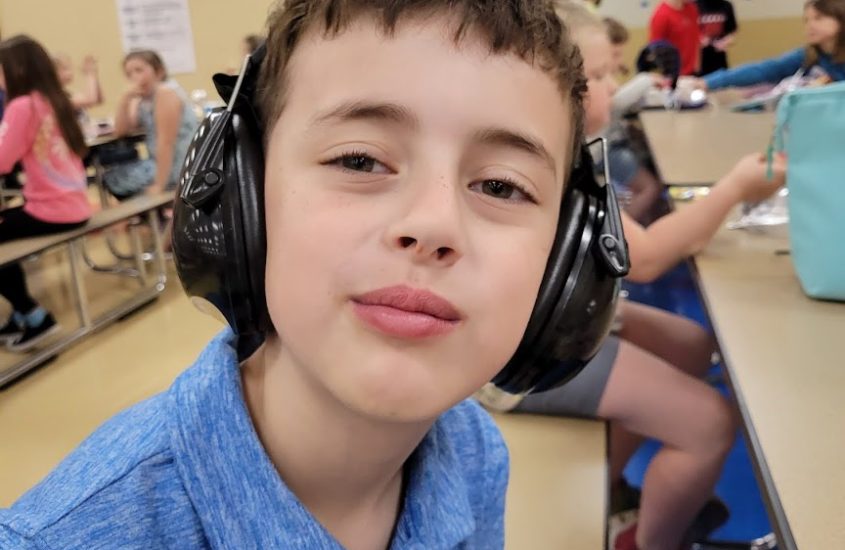IEP from a Mom’s Perspective

Spring is winding down and with summer break fast on the horizon, we are now in the swing of IEP season. For those of you unfamiliar with all this, an IEP is an Individualized Education Plan, which is essentially a legal document that outlines additional services and supports that your child will receive in school to help them thrive. Having a child on the spectrum (unless very high functioning) is probably a guarantee that you will be visiting this topic at least once a year with your school. I have officially been partaking in IEP meetings for my son for about 5 years now, but don’t let that fool you, I am far from an expert on the subject. If you are looking for specifics or questions a google search will lead you to about anything you could want to know (for one good option click here). But if you are like me sometimes too much information on a subject just becomes overwhelming, so instead of going into specifics that you could find anywhere else I will instead be providing you with some basic tips that I have personally learned over the years to help with performing my role in my son’s IEP.

- IEPs Can Start in Preschool
Work with your county. If you child qualifies early intervention services, then when your child turns 3, they will likely qualify for school services to address their delays. It may not exactly be through your local school. Every county is a bit different in how this may look. I am fortunate that these services are offered directly through our public school system, so for us there is less transition when moving from preschool to Kindergarten. If your child is identified as having a delay the preschool services will likely be offered at no cost as well.

2. You Can Bring Someone Along
I was nervous for my sons first IEP meeting. I wasn’t sure how it all worked. I wasn’t sure exactly what to ask for, or what I even should be asking for. Other than his evaluation, the school was new to my son too. At that point in time, we were still working with our County’s Plan Project Consultant and she asked if I would like her to come with me. Something I had never even thought about! She came along and was able to communicate directly to the team what she had seen in our sessions and provided great suggestions on things to add to the IEP that may be helpful to him. Having a professional that had already been working with him come along was a great way to make sure he got started off on the right track.

3. Get Everything in Writing
There are a lot of parents that go into an IEP meeting like they are going to battle with the school. This may very well be the case in some situations. Fortunately, that has not been my experience. I have been blessed with only great teachers and staff for my children. People that really seem to have their best interest in mind. But even with all that in mind, I would always suggest you get everything in writing. Without getting it in writing there is room for error, a possibility that something will be overlooked, or even that maybe your expectations may differ or be misunderstood by those working with your child. In writing is always better.

4. Don’t Be Afraid to Ask
I live by a pretty simple rule: If the worst they can say is no, then it doesn’t hurt to ask. There may be things that you think are asking for too much, or things that don’t directly seem related to what a school would be offering. That doesn’t mean you can’t ask. A great example of this for me was sensory food issues with my son. He is an EXTREMLY picky eater. When he moved on to kindergarten, I had fears of him going all day without eating, but I also didn’t want to just send in the same 3 food items every day. This wouldn’t have helped this issue either. I told the team my concerns and we came up with a plan where I would send some food items to school (like reward items) and he would still get a school lunch everyday and work on eating what they served all the other kids. His team has been amazing with this. They have made more progress with him at school on this than I have even been able to make at home, probably because there is so much structure for him. This was an item I would never have imagined to put on an IEP, but I still voiced my concerns and ASKED and doing so made a world of difference.

5. Least Restrictive Environment
Out of all the things you remember about IEPs, this should be at the top of the list. As I said, I have been very fortunate to have only worked with people who have my sons’ best interest in mind. But for those who do not feel that is the case, you need to remember this. Least Restrictive Environment (LRE) plays a very critical role in where your child will spend his time at school. This means that if being in a regular classroom is the best option for your child, then that is where they should be. Yes, this may require additional supports, aids, other accommodations or modifications, etc. The Least Restrictive Environment will not be the same for every child, it may even change with your child’s needs over time. The decision on best placement for your child is not determined by convenience or funds available from the school. For more information on Least Restrictive Environments click here.

6. You Don’t Have to be an Expert
Yes, it is good to be familiar with things when you go into this meeting. If you already have an IEP in place, I would suggest you get a copy before the meeting and review it so that you don’t waste time in the meeting having to go through everything line by line. But that doesn’t mean that you have all the crazy acronyms memorized (there seem to be a lot), or that you have to have all the answers to exactly what his services should look like. I am not a teacher or an administrator. I don’t know all the ins and outs to how everything is run in the school. If there is something I don’t understand, I ask for more information, more details. Ask them to break it down for you if you need. Your opinion absolutely matters in this. If they are saying things that are out of your realm (as you are not working in the school like them every day) then take the time to have them explain it to you. Make sure they break it down as well as they can, so that you can give your best input on it.
You know your child better than anyone else, so your participation in drafting his IEP is crucial. I hope everyone is lucky enough to be put in a school system that helps them through the process the way mine has. Don’t stress too much over getting it perfect. You are allowed to call a meeting throughout the school year if you feel changes need to be made. Progress reports on the IEP should be sent home periodically for your review as well to make sure things are on track. I feel that I have created a pretty good relationship with the staff at my children’s school and communication is very open which has helped make the process smoother as well. I hope this gives you some starters on how to advocate for your child to make sure they get an IEP tailored to exactly what will help them succeed in the classroom.




